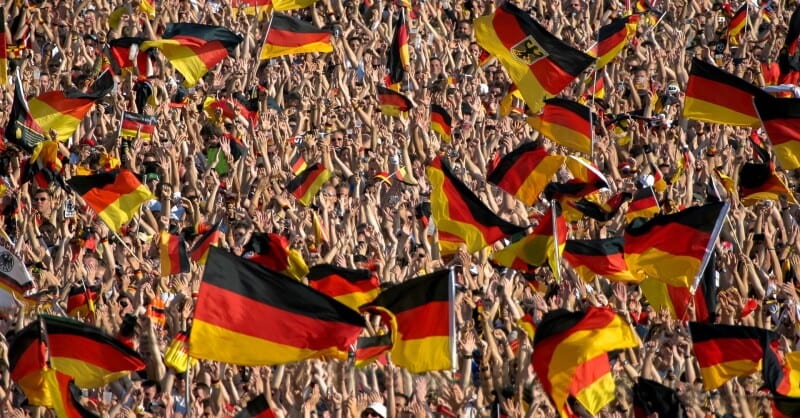GVC, Gauselmann and Tipwin among first German betting licensees

The trio have all issued public statements confirming they have secured licences, which have been issued with immediate effect.
However, GVC noted that the timing of the implementation of conditions attached to the licence was not yet clear. The operator said that it was working with the Regional Council to agree this, expecting to have all restrictions in place by early next year.
These conditions require operators to set a €1,000 monthly wagering limit for all customers. This can be increased to €10,000 for some customers, provided a maximum bet amount is set, and a loss limit, which prevents them from losing more than 20% of their maximum spend, is put in place.
For no more than 1% of an operator’s total customers, the wagering limit can be increased to €30,000, provided the player is at least 21 years old, and enhanced due diligence and monitoring is carried out.
Deposit limits must also be put in place until customer verification processes are completed, and operators will be restricted to offering customers a maximum bonus of €100 per year. Social responsibility measures set out in the incoming State Treaty on Gambling, the Glücksspielneuregulierungstaatsvertrag (GlüNeRStV) must also be enforced.
GVC said that these measures are likely to reduce group earnings before interest, tax, depreciation and amortisation by up to €40m per year once they are applied in full. This came after the operator said that the strict conditions set out in the GlüNeuRStV for online casino, such as a €1 per spin stake cap for slots, would reduce EBITDA by €70m from 2021.
Despite this, the operator’s chief executive Shay Segev said the awarding of the licences was “great news” for GVC, that would bring it “the clarity and certainty that we have long sought for sports-betting in Germany”.
“Combined with the recent Tolerance Policy we can now look confidently to the future, building on our position as a market leader by delivering an unparalleled, innovative experience for our German customers,” Segev said. “The much-anticipated regulation of online gaming in Germany re-enforces GVC’s position as the most globally regulated and responsible operator in our industry.”
Gauselmann Group, meanwhile, has been granted a licence for its Cashpoint Malta subsidiary.
“We are very pleased to be among the first to be able to offer our betting program to our sports-loving customers with a state license,” managing director of Merkur Sportwetten Markus Ettlin said. “After many years of legal limbo, binding rules now apply to everyone in the German sports betting market.”
“Above all, this strengthens consumer and player protection,” he added. “Because now not only customers who are enthusiastic about gaming, but also politicians, authorities and society can differentiate between illegal and permitted providers.”
Cashpoint Malta’s licence was also welcomed by Gauselmann founder Paul Gauselmann, who said that the business had met all the requirements for certification as far back as 2014.
“Unfortunately, it has taken until today to end this legal state of uncertainty,” he said. “But I am all the more pleased that we are finally among the first.”
Tipwin also pointed out that it had been cited as having met all the licence conditions in 2014. Its managing director Ivica Batinic and head of legal Damir Böhm said in a joint statement that they were relieved that the long-standing legal uncertainty had been ended.
“The granting of the licence promises a great opportunity for everyone involved, whether that’s people, politicians, authorities, providers and consumers,” they said.
“It is the first step towards a real and responsible regulation of sports betting in Germany. We hope that this will pave the way for the new GlüStV 2021, further legal improvements and also an effective enforcement against providers who are not willing to regulate.”
The awarding of the first sports betting licences comes following years of legal challenges, false starts and recriminations. The launch of the licensing process from 2 January this year appeared to have set a path forward, only for a legal challenge by Austrian bookmaker Vierklee to derail efforts.
Vierklee’s argument that the process lacked transparency and favoured market incumbents was accepted by the Darmstadt Administrative Court, which blocked the Regional Council from awarding licences.
However, the Council said it would continue to process applications as it appealed the court ruling.
While it is yet unclear whether that legal process has come to an end – and iGB has contacted the Regional Council for clarity – lawmakers have looked to break the regulatory stasis by agreeing a transition period for online gambling.
The terms of the transition period were agreed in September, but not ratified by all states until 1 October. Under this framework, operators that comply with the terms of the GlüNeuRStV by 15 October will be permitted to offer online sports betting, slots and poker until the Treaty comes into force from 1 July next year.
However, concerns remain, with the Deutscher Sportwettenverband noting that operators are now being required to complete complex technical processes to comply with the Treaty in an unfeasibly short space of time.
Projects that often take months to complete must effectively be finalised in a matter of weeks, it warned earlier this month.
